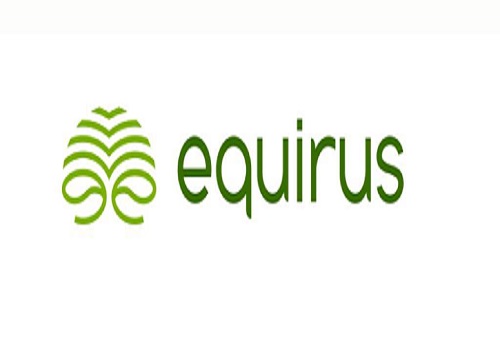Equirus Family Office Releases Whitepaper on U.S. Estate Tax Risks for Indian Investors

Equirus Family Office, one of India’s leading multi-family and private wealth offices managing USD?2.2?billion across HNIs, Ultra HNIs and the mass affluent segment, today announced the release of its latest whitepaper titled “U.S. Estate Tax: What Indian Investors Need to Know.” The report sheds light on a lesser-known but financially significant concern — the exposure of Indian residents to U.S. estate tax on assets such as ESOPs, stocks, or real estate held in the United States. It aims to raise awareness among Indian investors — especially professionals and founders holding U.S.- listed ESOPs or direct equity — about this little-known tax regime that can significantly erode crossborder wealth. A growing number of Indian professionals working with U.S. multinationals like Microsoft, Google, or Broadcom etc hold U.S.-listed ESOPs. However, few realize that in the unfortunate event of their death, up to 40% of their U.S. assets could go to the U.S. government as estate tax — even if they lived and worked entirely in India. A crucial point to note: India does not have an estate or inheritance tax treaty with the U.S., meaning no relief is available for such exposure. The whitepaper provides strategic insights for Indian investors to safeguard their cross-border wealth and preserve intergenerational assets.
The study outlines:
* When and how U.S. estate tax applies to non-resident Indians
* Exemptions, filing requirements, and lack of treaty relief
* Case-based illustrations for Indian professionals holding U.S. ESOPs
* Strategies to mitigate estate tax risks through appropriate structuring
Hidden Exposure for Indian Investors
What is the U.S. Estate Tax?
The U.S. Federal Estate Tax applies upon the death of an individual, taxing the transfer of property based on its fair market value at the date of death.
For a person who is not a U.S. citizen or Green Card holder, the U.S. estate tax applies only on U.S.- situated assets.
U.S.-situated assets include:
* Real estate situated in the U.S.
* Tangible personal property in the U.S.
* Stocks of U.S. listed incorporated companies (including ESOPs in U.S. firms)
The U.S. Federal Estate Tax is a levy on the transfer of a deceased person's estate. It is not an income tax, but a transfer tax applied to the total gross value of an individual's assets at the time of death.
Why Indian Investors Are at Risk
An Indian citizen holding ESOPs or shares in a U.S. company is considered a non-resident alien under U.S. tax laws. If their total U.S.-situated assets exceed USD 60,000, the estate tax applies — with rates escalating from 18% to 40%.
In contrast, U.S. citizens and Green Card holders enjoy a much higher exemption of USD 13.99 million (for CY 2025). India and the U.S. also do not have an estate or inheritance tax treaty, meaning no relief is available to Indian residents.
Who Bears the Tax Liability
A critical point of confusion is liability. Now the question is who actually pays the estate tax when the owner of the assets dies?
* The primary responsibility falls on the executor or legal representative of the deceased's estate.
* This person must file a U.S. tax return (Form 706-NA) and pay the tax due within 9 months of death, before distributing assets to heirs.
* Unpaid taxes can be collected by the IRS from any beneficiary who inherits such property.
No Tax Treaty Relief for Indians
While India and the U.S. have a Double Taxation Avoidance Agreement (DTAA) for income tax, there is no treaty governing estate or inheritance taxes. Thus, Indian investors cannot claim any offset or exemption on U.S. estate taxes.
While India itself does not impose an estate tax, income from inherited assets (e.g., dividends, capital gains) remains taxable when realized.
Mitigation Strategies: Proactive Planning is Key
The Whitepaper outlines several prudent planning options. Several legitimate strategies can significantly reduce or eliminate estate tax liability:
* Selling Soon After Inheritance:If the beneficiary sells the U.S. shares soon after inheriting them, the U.S. capital gains tax may be very low or even zero. This is because of the “step-up in basis” rule, which resets the cost of the asset to its fair market value on the date of death. In simple terms, this can help offset a large estate tax with a much smaller capital gains tax.
* Investing Through Non-U.S. Intermediaries: Instead of owning U.S. stocks directly, investors can access U.S. markets through alternative structures that help minimize estate tax exposure, such as:
* Foreign Mutual Funds or ETFs: By investing in a non-U.S. fund (for example, an India-domiciled mutual fund that holds U.S. stocks), your holding is treated as a non-U.S. asset for estate tax purposes.
* Non-U.S. Holding Companies or Trusts: Holding U.S. assets through a foreign company or irrevocable trust can also help protect them from U.S. estate taxes when properly structured and compliant
Neha Joshi, Head of Taxation, Equirus Family Office, said: “Global wealth creation among Indian professionals and entrepreneurs has accelerated dramatically over the past decade. Yet awareness around cross-border estate and inheritance taxation has not kept pace. Estate taxes remain one of the most overlooked aspects of global financial planning. Through this whitepaper, we aim to build awareness among Indian investors and professionals about these hidden tax exposures and highlight the importance of early planning to protect their families’ financial legacy. Our goal as advisors is not just to help clients grow their wealth, but to preserve it across borders and generations.”
Conclusion:
The U.S. estate tax poses a substantial risk to Indian families who have built cross-border wealth through U.S. investments. A lack of awareness can result in the unintended loss of nearly half of that wealth. As cross-border investments become increasingly common, understanding and planning for international tax implications is no longer optional — it’s an essential component of comprehensive financial planning. Early estate planning and informed structuring are key to preserving intergenerational assets.
Above views are of the author and not of the website kindly read disclaimer























